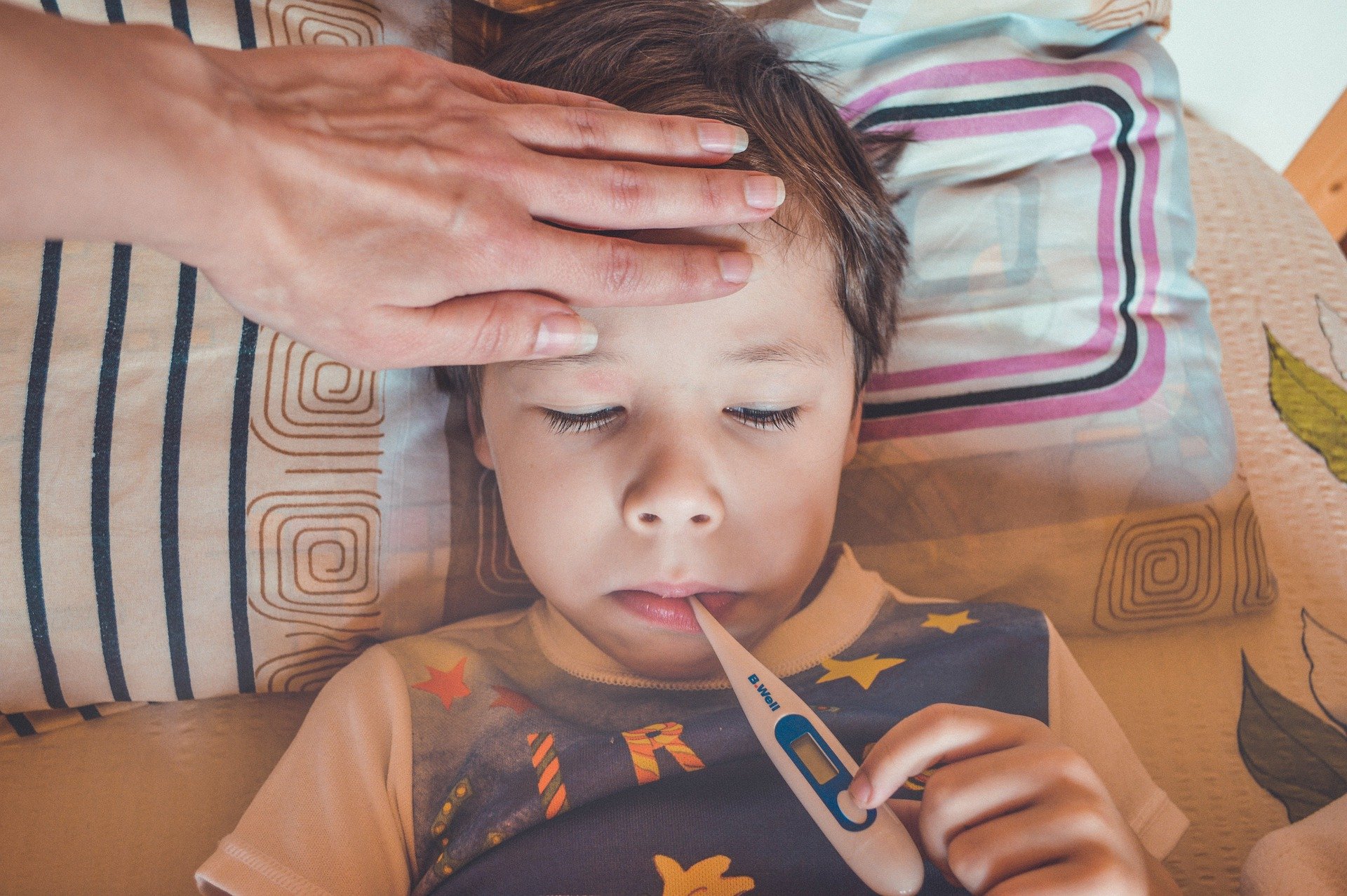Thursday, 22 July 2021
What should I do if my child has a high temperature?

Advice for parents and carers on how to look after their child at home if they have a high temperature and when to get help.
It can be scary if you have never seen your child hot and unwell before, and it can make you feel anxious and worried.
A high temperature is 38C or more and is very common in young children. The temperature usually returns to normal within 3 or 4 days.
You can usually look after your child or baby at home. You should:
- give them plenty of fluids
- look out for signs of dehydration
- give them food if they want it
- check on your child regularly during the night
- keep them at home
- give them paracetamol if they're distressed or unwell
- get medical advice if you're worried about your child
Call 111 or your GP surgery now if your child:
- has a high temperature that's lasted for 5 days or more
- is under 3 months old and has a temperature of 38C or higher, or you think they have a high temperature
- is 3 to 6 months old and has a temperature of 39C or higher, or you think they have a high temperature
- has other signs of illness, such as a rash, as well as a high temperature
- does not want to eat, or is not their usual self and you're worried
- has a high temperature that does not come down with paracetamol
- is dehydrated – such as nappies that are not very wet, sunken eyes, and no tears when they're crying
Call 999 if your child:
- has a stiff neck
- has a rash that does not fade when you press a glass against it (use the "glass test" from Meningitis Now)
- is bothered by light
- has a fit (febrile seizure) for the first time (they cannot stop shaking)
- has unusually cold hands and feet
- has blue, pale or blotchy skin, lips or tongue
- has a weak, high-pitched cry that's not like their normal cry
- is drowsy and hard to wake
- is extremely agitated (does not stop crying) or is confused
- finds it hard to breathe and sucks their stomach in under their ribs
- is not responding like they normally do, or is not interested in feeding or normal activities
For more NHS advice and guidance, visit: https://www.nhs.uk/conditions/fever-in-children/
You can also download a helpful booklet containing advice on how to deal will common childhood illnesses here.
Content provided by One Liverpool, a partnership of local health and care organisations working together to support a healthier, happier and fairer Liverpool for all.
Published on Thu, 22 Jul 2021 15:44:44 GMT
Modified on Thu, 22 Jul 2021 15:47:31 GMT